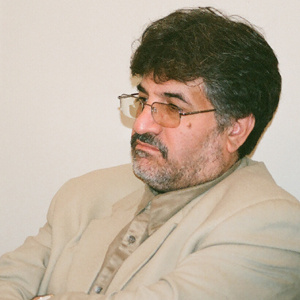Gates’ Memo and the U.S. Dual-Track Policy
By Naser Hadian

In a classified memorandum drafted in January 2010, U.S. Defense Secretary Robert Gates has asserted that the Obama administration has no well-prepared strategy to confront Iran’s progressing nuclear program.
Naturally, differences of opinion among U.S. decision-making bodies should not come as a surprise. At the end of the day, it is the president who will decide which of many alternative solutions the U.S. will pursue, or as the expression goes, the buck stops in the Oval Office. But while the president is busy weighing each option, the pros and cons of those options will be circulating and fiercely debated. The arguments over what to do about Iran’s nuclear program will subside when the president and his top aides come to a final decision, although this will not happen for a while as the Department of Defense and Robert Gates support taking massive, tangible steps now.
Iran, meanwhile, needs to view the disagreements among the U.S. decision-making bodies over its nuclear program as an opportunity it can take good advantage of. Grasping this opportunity depends on what attitude Iran adopts, and what decisions it makes itself. Tehran crucially must play its hand wisely.
Obama himself seems to still support using a dual-track approach. As long as U.S. and the international community have not come up with a clear solution to Iran’s nuclear program, continued diplomacy and sanctions will be the basic tools on the table. Obama’s administration welcomes negotiations, but that does not stop it from putting further economic and diplomatic pressures on Iran.
Sanctions are not a short-term remedy, as they will take effect over time. Washington claims the sanctions imposed against Tehran aim to change the behavior of the Islamic Republic, but they can actually serve as a tool to undermine the regime. The gap between what the Americans profess is their aim, and what they actually hope to accomplish, never seems to close.
Naser Hadian is Tehran University Professor and Iran-U.S. affairs analyst.
Naturally, differences of opinion among U.S. decision-making bodies should not come as a surprise. At the end of the day, it is the president who will decide which of many alternative solutions the U.S. will pursue, or as the expression goes, the buck stops in the Oval Office. But while the president is busy weighing each option, the pros and cons of those options will be circulating and fiercely debated. The arguments over what to do about Iran’s nuclear program will subside when the president and his top aides come to a final decision, although this will not happen for a while as the Department of Defense and Robert Gates support taking massive, tangible steps now.
Iran, meanwhile, needs to view the disagreements among the U.S. decision-making bodies over its nuclear program as an opportunity it can take good advantage of. Grasping this opportunity depends on what attitude Iran adopts, and what decisions it makes itself. Tehran crucially must play its hand wisely.
Obama himself seems to still support using a dual-track approach. As long as U.S. and the international community have not come up with a clear solution to Iran’s nuclear program, continued diplomacy and sanctions will be the basic tools on the table. Obama’s administration welcomes negotiations, but that does not stop it from putting further economic and diplomatic pressures on Iran.
Sanctions are not a short-term remedy, as they will take effect over time. Washington claims the sanctions imposed against Tehran aim to change the behavior of the Islamic Republic, but they can actually serve as a tool to undermine the regime. The gap between what the Americans profess is their aim, and what they actually hope to accomplish, never seems to close.
Naser Hadian is Tehran University Professor and Iran-U.S. affairs analyst.

